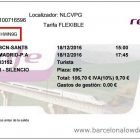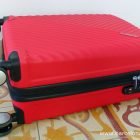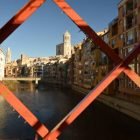In this post, we talk to travel writer, photographer, filmmaker, blogger and all-round Barcelona connoisseur Ben Holbrook.
I’ve been a fan of Ben’s work since discovering his blog Driftwood Journals back in 2013, and when the opportunity arose, I jumped at the chance of finding out more about what inspires him and his life in Barcelona.
Without further ado, here’s my interview with Ben Holbrook:
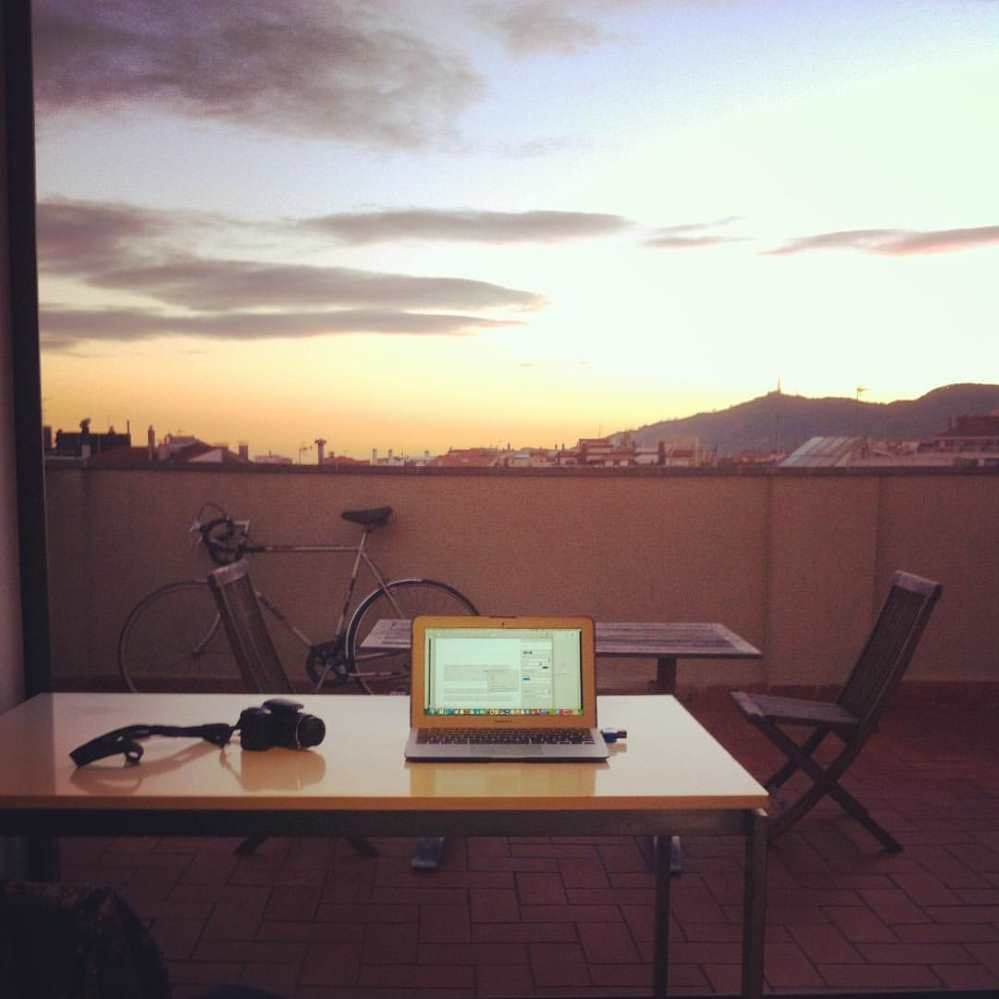
Hi Ben, I think that most backpackers and gap year travellers daydream about becoming a travel writer at one time or another. For most of us, it’s just a pipe dream that we’ll never realise. How did you get started? Did you just wake up one day and decide to move to Barcelona, start a blog and become a travel writer or was there a more gradual transition?
Initially I moved to Barcelona to teach English. I had dreamed about living abroad for a very long time and stumbling upon the world of TEFL felt like discovering a golden ticket to make it happen.
While teaching English, I became increasingly aware of my interest in the written/spoken word. I’d always loved music, but suddenly I was more tuned into the lyrics of my favourite songs. I used a lot of music in my classes to teach new vocabulary, and obviously we did a lot of reading. I appreciate it’s a very roundabout way of getting to writing, but that’s sort of how it happened. As well as teaching, I also ended up writing blog posts for a Barcelona-based relocation company. It was one of those rare lightbulb moments when I realised, “Hey, I can do this!”. I was young and it felt good to finally find my thing.
Anyhow, after two years in Barcelona, I moved to London to pursue a career opportunity. Essentially I worked as a copywriter/content writer at an agency. Then the agency got much bigger and I became “Head of Content”, hiring, training and managing a team of 10+ writers from all around the world. It was a great opportunity, but looking back I realise now that I never really wanted to be a manager. I wanted to be a creative myself, so being a manager was sort of like doing all the bits I didn’t want to do and none of the bits that actually interested me – i.e. the actual creating.
That’s when I decided to bite the bullet and move back to Barcelona and become a full-time freelancer. My primary plan was to set up a copywriting/content marketing agency, which I did – it’s called 7 Seas Content – and I thought I would run my travel blog, Driftwood Journals, alongside. But I think it’s only natural that you end up investing more of yourself in the things you are most passionate about, and although 7 Seas Content took off (and is still a big part of my working life), it was Driftwood Journals that had the most success.
As well as writing content for my blog, I also advertised my writing/copywriting services on it, which attracted clients including Ryanair, Easyjet, Avis, National Geographic Traveller, Telegraph Travel, and many more. I also got two book deals as a result of my blog: The Hunt Guides Barcelona and Barcelona Precincts. I also write commercial content for companies as a travel-specialist copywriter, but obviously I don’t put my name to this, so you’d never know I’d written it.
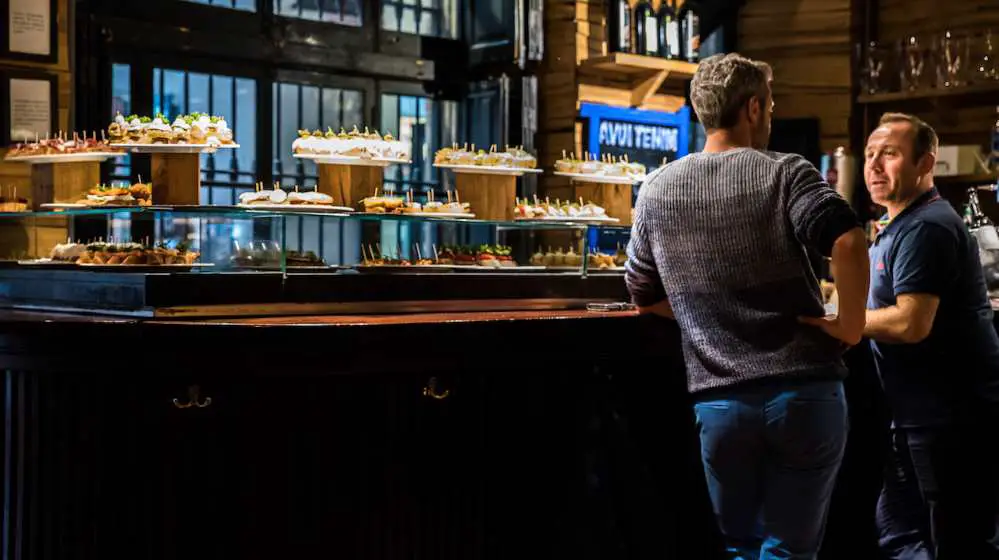
Do you remember what it was like when you first moved to Barcelona? Did it take long for you to find your feet or did you feel at home as soon as you arrived?
I remember it as if it were yesterday (even though it was actually 11 years ago now!). The key point for me was that I had a purpose. I arrived on a Saturday and started my TEFL teaching course on the Monday. The school had set up accommodation for me, a tiny little single room in Gracia, which was perfect. Anyone who’s ever done a TEFL course will know how full on it is.
We’d study like crazy during the week, but then we’d party on the weekends. It was perfect because I had an instant community, a little gang of friends from all over the world who all had the same thing in common – that we’d just arrived in Barcelona with hopes of finding a way to stay.
I ended up renting a flat with an American couple from my course. I’m still really good friends with a lot of people from that first month in BCN.
I’ll be honest, once the TEFL course ended, I struggled to find a job and I seriously thought about going home. But then I picked up a few classes, and then a few more, and somehow I made enough to live the simple little life I had dreamed of.
When I moved back to Barcelona for the second time (from London), I had the advantage of knowing the city well. Plus I had a bit more money saved up (which I think is essential), and even more importantly I had a plan of action, which was to start my freelance life.
I rented a flat for a month or so on Airbnb, with the aim of staying there while finding something more permanent. But then I got chatting with the owners of the property and they said I could rent it long-term. It was really expensive, but it was a glorious atico with two massive terraces. That became my office while I was starting 7 Seas Content and Driftwood Journals, and it was the most perfect and inspiring space to work in. In a strange way, it was living there that gave me the drive and desire to make it all work. I loved my life so much, I just couldn’t even entertain the idea of giving it up.
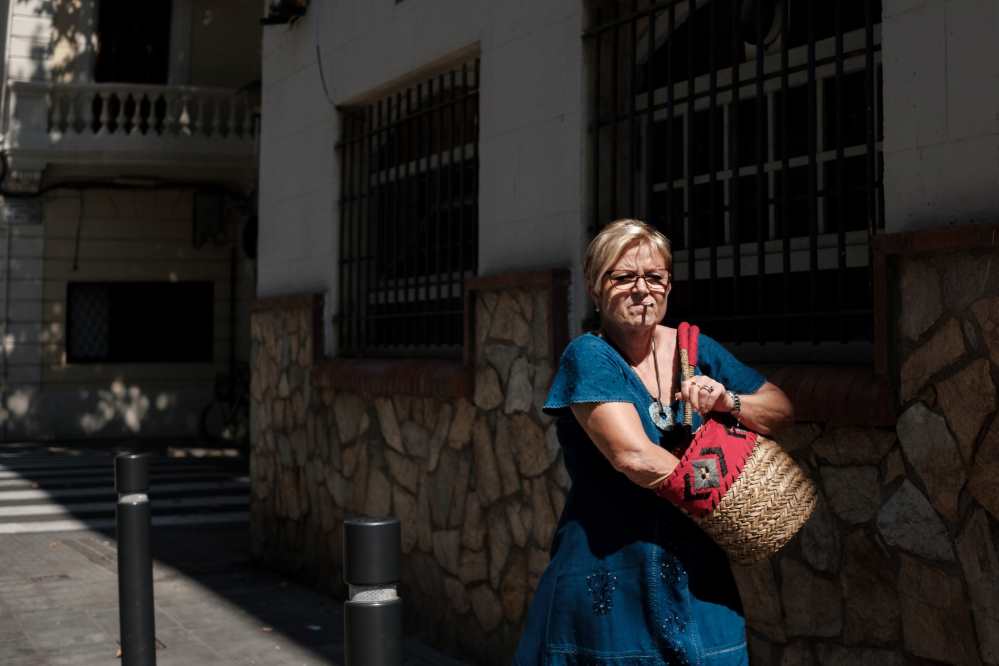
I’ve got a few friends who are self-employed and are always bemoaning the fact that the Spanish tax system makes it very hard for freelancers to earn a living. Presumably, this is even truer when you’re new to the city and, apart from paying taxes and the “autonomos” fee you also have to go through the process of finding a place to live and becoming legally resident in Spain. How did you deal with all that?
It is indeed ridiculous, and confusing. I never really understood it, but luckily I knew people who knew people, and they helped take care of it all for me (for a fee of course). I think that’s the key really – to let someone else handle it.
With regards to becoming Spanish, and the whole matter of Brexit, I think it was one of the factors that made me think seriously about whether I was going to stay or not. It felt like such a big commitment, and ultimately one I wasn’t willing to make.
If I remember right, you ended up living here in Barcelona for about ten years. What were your favourite things about living here? Are there any interesting or funny anecdotes that you’d like to share with us? Anything you miss now you’ve moved away?
On and off I was in Barcelona for about 6/7-ish years (I also lived in Asturias for a year, but I’ll get to that later). There were two very distinct periods for me: the first time I moved to Barcelona, and the second time I lived there.
When I first arrived, I was 25 years old and all I really wanted to do was live. I wanted to explore and experience as much as possible. I made the most of the nightlife, but also loved (and still do) just hanging out with my friends at the beach with a few cold cervezas. What I love so much about Barcelona is that it’s the perfect place for people who don’t necessarily like to plan too much. I’d meet a friend for a “quick beer” on a Saturday and then bump into another friend. Next thing you know you’ve been to a secret rave in Poblenou and made new friends at a house party. The next day you go for breakfast together, then the beach, and before you know it you’re at another party, making more friends. I should add, however, that I also experienced some of the worst hangovers of my life during this period, and when I look back I feel I wasted far too many days curled up in bed.
I remember once, I was saying goodbye to my friend Jason at the metro station at Plaça de Catalunya. He was always getting robbed, but this time I saw the guy doing it right in front of us.
We’d been sipping cerveza for most of the day so my Dutch courage kicked in. I grabbed him by the scruff of his neck and told him to give my friend his phone back. Of course, he denied that he had it, even though I’d just watched him take it with my own eyes.
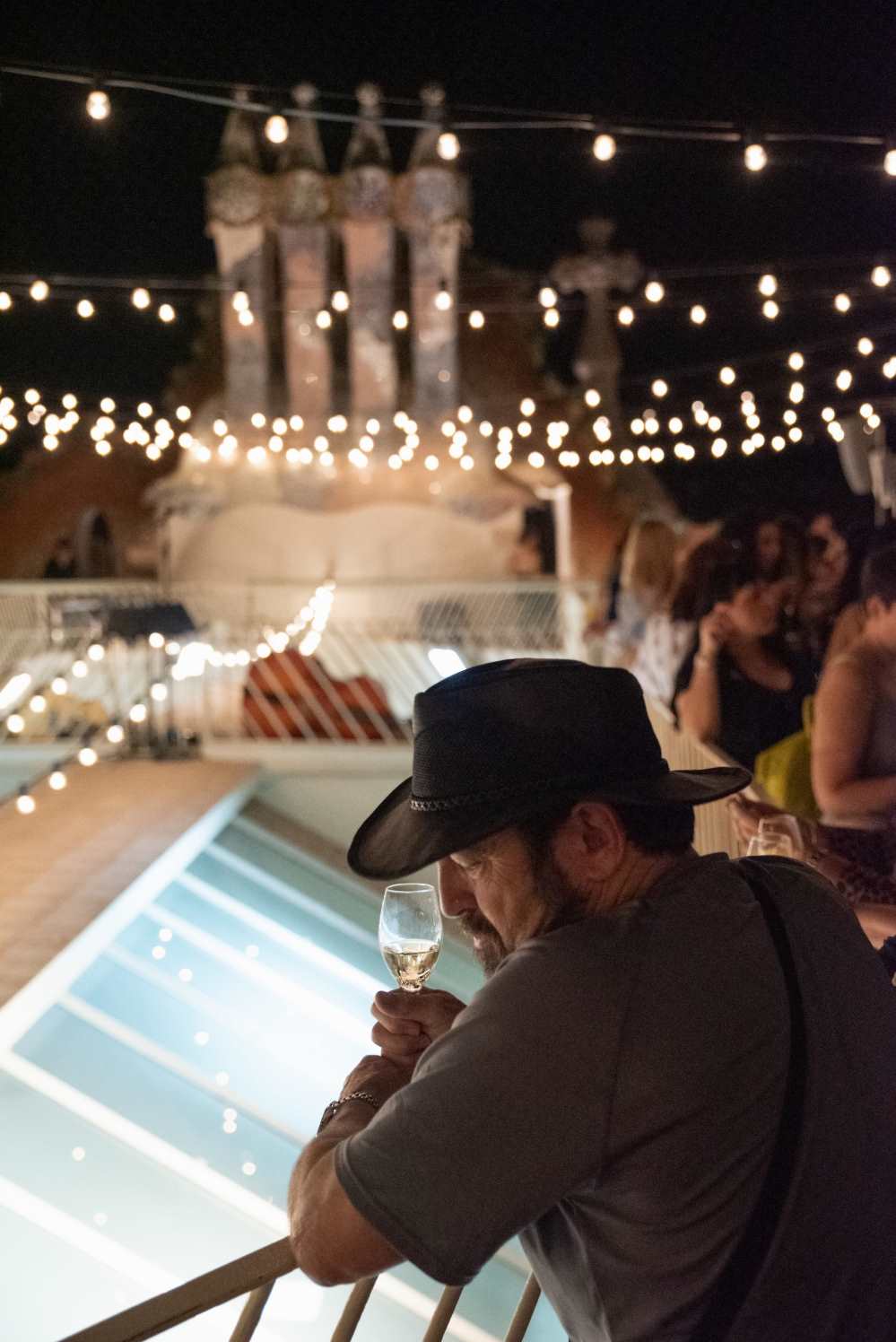
The next thing I know, the police come over to break up what they believe is a guiri attacking a local. I explained that he had my friend’s phone but they didn’t seem to care. The pickpocket wriggled his way out of the policeman’s grip and bolted across Plaça de Catalunya.
I watched on incredulously as the policemen shrugged their shoulders – ”just another common thief” they seemed to say. I decided that if they weren’t going to do anything about it, then I would.
So I darted after him on my wobbly legs. I remember the sensation of just being a head floating through the plaza. I couldn’t feel my legs moving because I was so drunk, but I was aware that I was catching up with him. He was looking back over his shoulder and I remember seeing the look of disbelief on his face. I was screaming all sorts at him and he threw my friend’s phone on the ground.
I caught up with him and grabbed him again by his jacket, before realising he’d run to the cover of his villainous friends, who started circling around me like something out of an old 80s movie.
Luckily the policemen had strolled over after me, so I dragged the thief to them kicking and screaming. They took it a little bit more seriously this time, having seen I was telling the truth about the stolen phone (which they were now holding). But still they let him go. “Well you’ve got your phone back now,” they said, “so what’s the problem?” The fact that I had literally done their job for them didn’t seem to enter their minds.
I cringe when I look back on those crazy years. But, you know, I did it, I lived. I really lived. It’s such a spontaneous way of life living in Barcelona. I don’t know if you’ve ever seen the short film called “Vale” that Estrella Damm put out a few years back, but that’s basically Barcelona life in a nutshell. But instead of the story ending with a kiss from Dakota Johnson, I got to wrestle with a local ladrón.
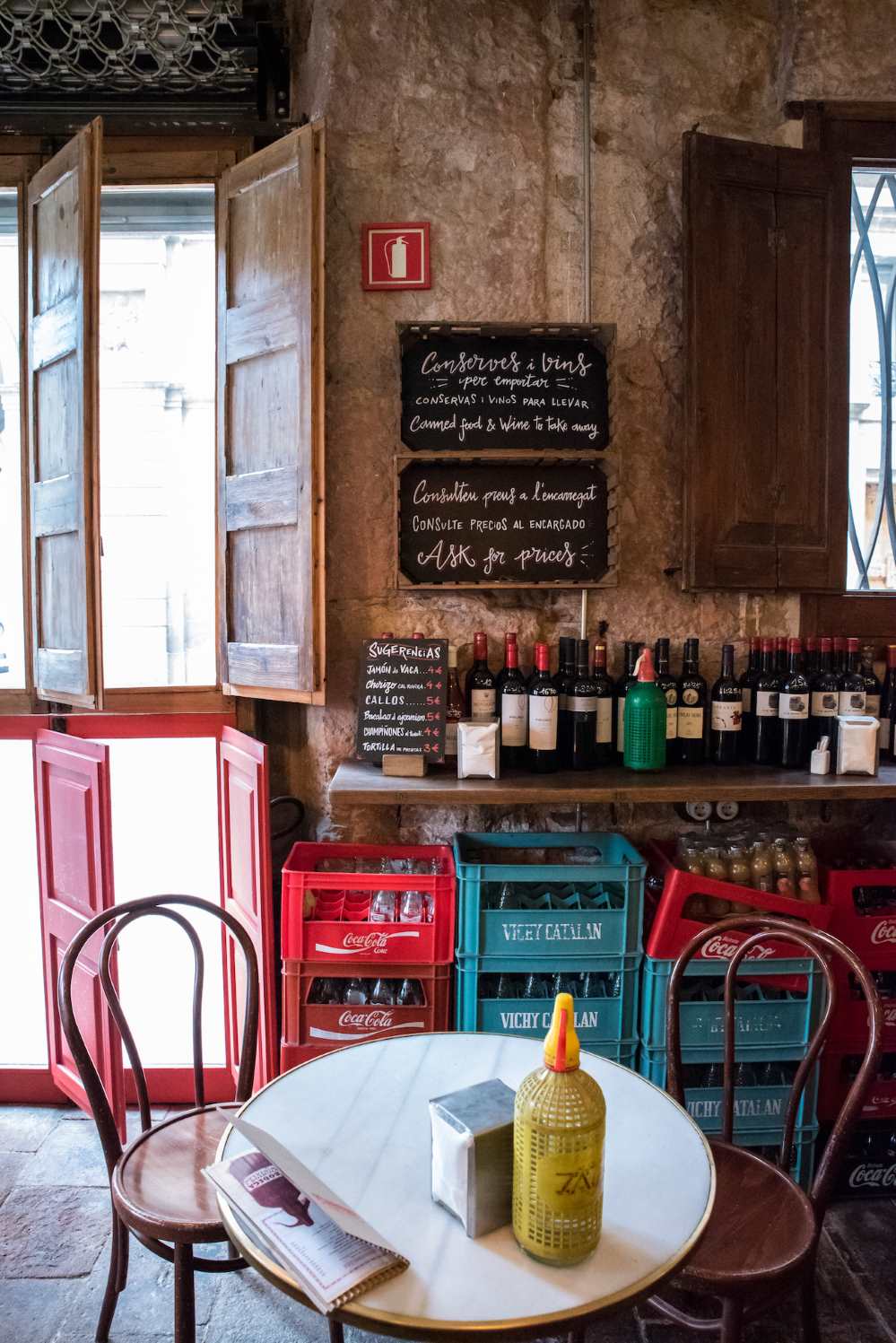
My second stint in Barcelona was entirely different. I was quite a few years older. I was extremely ambitious, and I had a clear direction. I put everything I had into making it work as a freelancer, writing for literally 10/12 hours a day, going out to take photos for my blog.
After these long days staring at a computer screen I’d be desperate to get my body moving. Almost every day, I’d finish work, jump on my bike and cycle up to the Collserola mountains. Perhaps it’s an odd thing to say, but it’s one of the things I miss most about living in Barcelona. It’s so beautiful up there. Cycling along the Carretera de les Aigues, you can see the whole of Barcelona beneath you. You realise how small the city is, and also how unique. I’d listen to music and traverse the dusty sunbaked track, breathing in the sweet smells of sticky pine trees as their sap oozed in the heat. Sometimes I take a little can of cerveza with me to sip once I got to the end of the track.
It’s crazy, because it’s a good two-to-three-hour bike ride, up seriously steep climbs, but I couldn’t get enough of it. I would literally go up there every day, working out different routes – many of which I have shared in my “Barcelona by Bicycle” guide.
In the summer, when it was far too hot to do that sort of ride in the day, I’d work until 10pm and then go cycling once it was dark. I bought these powerful lights to go on my bike, but it was still difficult to see. Occasionally I’d be up there at midnight, or even later, cruising along, enjoying the city lights twinkling below, and a huge wild boar would come galloping out of nowhere and hoof up a trail of dust right in front of me. They’re such huge and intimidating beasts, but I got used to them. One night I hit one of the concrete drainage channels at the wrong angle (and without seeing it because it was so dark) and went flying over the handlebars. I cut myself up pretty badly and also broke a finger, which I was pretty upset about as a guitar player.
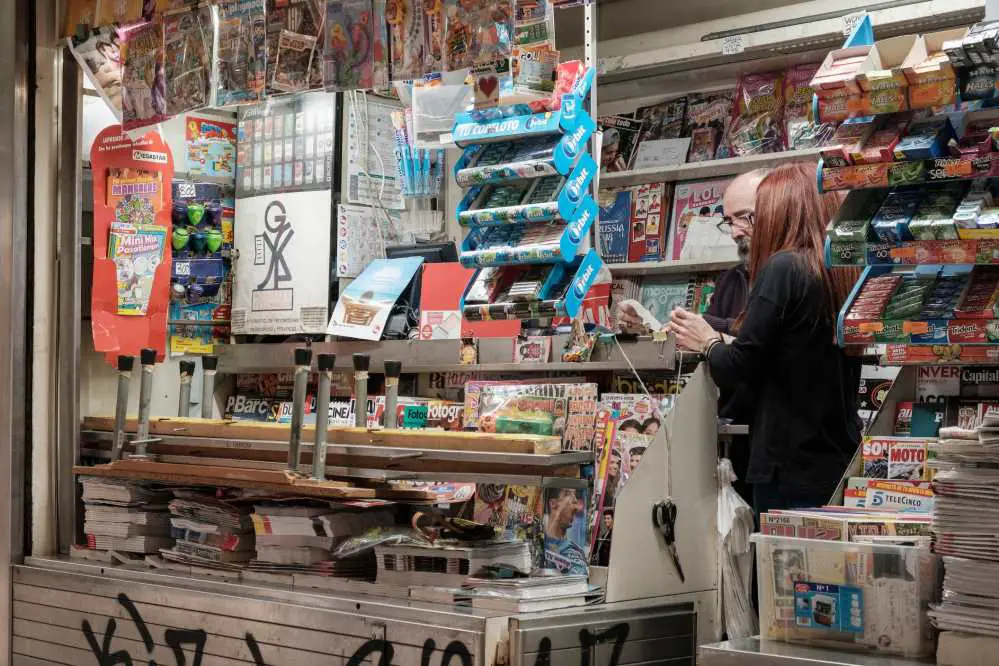
From reading your blog, apart from your love of travelling and Barcelona, you’re clearly a fan of Spanish wines and the Catalan tradition of “anar a fer el vermut”. Do you have any favourite bars or secret spots that you’d like to share with us? A favourite wine that you’d recommend maybe?
Despite the picture I paint with my answers to the previous questions, it’s actually the civility with which the Spanish and, indeed, Catalans approach their eating and drinking that I have always loved. It’s the ritual of it all, the social element, the formality of the informality.
I love how almost everyone drinks wine. But they also appreciate it, there’s a level of respect. It’s perceived as an art, and winemakers as artists. It’s just so different to wine culture in the UK. The same can be said for drinking vermouth. It’s not about getting drunk, it’s about socialising with your friends before going home to have lunch with your family. The Spanish seem to want to be with their friends all the time, and if they’re not with their friends then they’re with their families. It’s an admirable ideal.
For me, going out for a glass of wine, or a vermut, is about observing these social rituals (and occasionally being part of them myself). It’s about appreciating the craftsmanship of the winemakers and exploring the fantastic food pairings that have been discovered of the centuries. I can’t think of anything better than a pre-lunch feast of vermut or white wine with olives and shellfish and bravas and ensaladilla russia. A truly affordable luxury.
There are too many places to mention, but I spent a lot of time at Vermut i a la Gàbia in Plaça d’Osca (Sants). This was actually my local bar for a few years when I lived in Sants, and I’d meet my friends there every Wednesday for drinks and nibbles. I also love Els Sortidors del Parlament and would typically stop by there on my way to Barna Brew for craft beer (another regular haunt for me).
For the full “vermut musical” experience, which is basically a pre-lunch fix of vermouth and live Catalan rumba, I’d highly recommend Gran Bodega Saltó on C/ Blai in Poblesec. It’s one of those places you go to for “one quick drink before lunch” and end up partying with a bunch of crazy Catalans for the rest of the day! I’ve written more about my favourite vermouth-sipping spots on my blog.
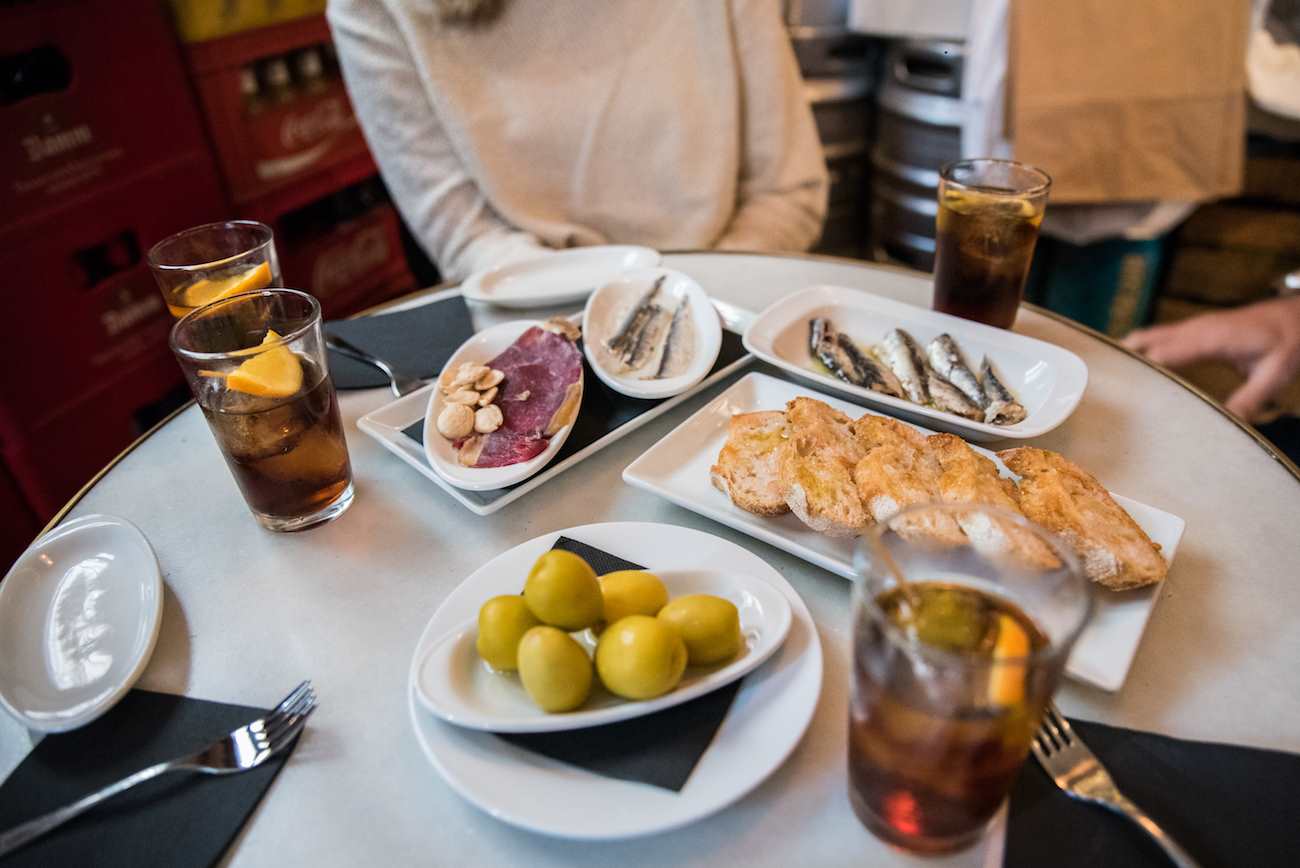
Wine-wise, I absolutely adore the natural/bio white wines from Alella and Empordà, and reds from Priorat and Montsant. Rioja always puts a smile on my face, too. If vino is your thing (and it should be if you’re going to BCN), I’d definitely recommend doing a wine tasting session at Salut Wine Studio or Rack and Return, or asking for a few recommendations at wine bars like Amovino, Bodega Maestrazgo, Zona d’Ombra, Bar Zim and Eldiset. I’ve written a whole lot more about drinking wine in Barcelona on my blog.
I’ve said this before but I think it’s worth mentioning again; one of the things which I like about Driftwood Journals is the fact that your posts are so immersive. By this, I mean that, rather than just writing about places, you always tell a story and take your readers along with you. As if you’re trying to inspire them to do the same. Is this a writing style that you’ve adopted intentionally or did it just come naturally?
Thank you, Richard! That’s really kind of you to say, and great to hear! I never really had any desire to write formal “travel guide” type pieces. My passion is storytelling, so I try to weave my own experiences into my guides so that they’re personal as well as informational – it’s about balance.
For me it’s not just about explaining that “place x” serves “x, y and z” and costs “z amount”. I’m more interested in the experience a place offers, the emotions it might make you feel, or the story that may unfold when you visit it. I’ve never sat down and formally tried to define my “style” of writing. I think, like every creative, my work is merely a result of my influences. Sometimes I think I’m more influenced by poets and songwriters than travel writers, and maybe that makes my work a little bit different.
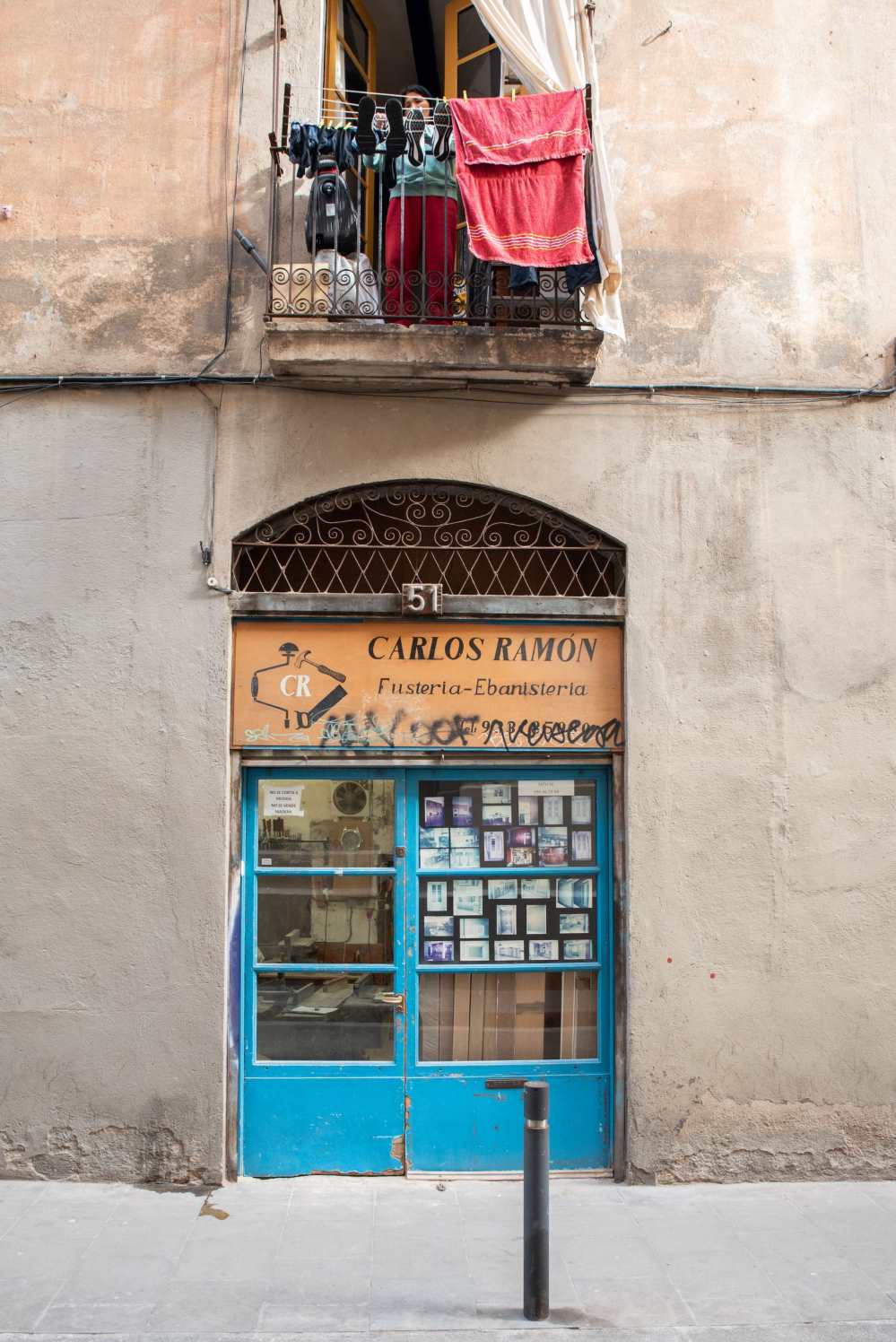
When I started travelling, back in the early nineties, I really got into reading books by writers such as Paul Theroux, Ted Simon and Bill Bryson. Who are the authors and photographers who’ve inspired you most or that you try to emulate?
Yes, I absolutely adore Paul Theroux and would say that’s more the style of travel writing that inspires me. I’ve struggled with this, as I haven’t really been able to fully immerse myself in that approach to travel writing. Theroux tells it as it is, shares his experiences without any agenda. But when you’re trying to write “useful” information on a travel blog, you can’t write that way. It’s not about you and your experiences, about the reader and the experiences you are helping them have. You’ve got to think of someone visiting Barcelona with their partner or family. Unlike Theroux, they’re not looking for adventure, but comfort and romance.
But yes, I admire him hugely, and also love Bill Bryson’s sense of humour. One of the greatest influences on my writing, however, has been Chris Stewart. Reading his book, Driving Over Lemons, a memoir telling the tale of how he and his family bought a ruined old farm in the Alpujarras mountains, was what made up my mind about leaving London and moving back to Barcelona. I love his writing.
Photography wise, I have many influences, but certainly Steve McCurry is a major influence. I also love the work of Barcelona photographer Sasha Asensio, who shows a very different side of the city to what most people choose to see. He shows the underbelly, the gritty lives lived by the less fortunate.
I think what I really value in other people’s writing and photographs, is their ability to notice, their willingness to observe the world as it really is. Modern travel blogging/writing is all about painting this “perfect image”, but it doesn’t necessarily tell the whole truth.
In another life, I would have been born a few decades earlier, when it was possible to make a living from writing narrative style travel books. But as it is, my blog has been the platform for my creative output, which means I’ve had to work within the rules of supply and demand.
It’s a cultural thing. Back in the day I think people used to read travel narratives as a way to explore the world. You could read a book like Theroux’s Great Railway Bazaar and feel what it would be like to ride the trains of India, but you didn’t necessarily dream of doing it yourself. These days, travel is all about having these experiences firsthand. Because of this, travel content has changed to be more informative. If Paul was starting out now, he wouldn’t be writing a book about his own journey, but writing a guide to help others do the same (I mean, he wouldn’t because he’s Paul Theroux, but you get my gist).
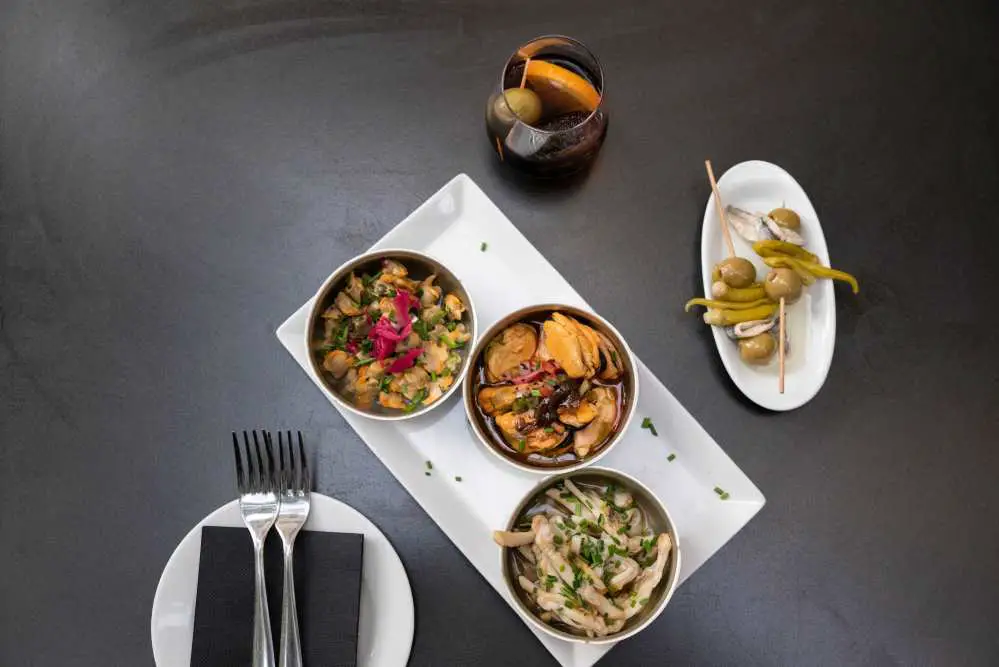
A couple of years ago you moved to Asturias and then finally back home to Wales. What prompted you to leave Barcelona and how have you found things back in the UK? Was there any sense of reverse culture shock?
You know how when you stay at a friend’s house for a long period of time, and you feel like you have to be overly polite and careful. You tiptoe around, trying not to make a mess, trying to fit into their routines and way of living… Well that’s sort of how I felt living in Barcelona (and then Asturias). I never felt like anything more than a guest in someone else’s home – and often like an unwanted guest. In the eyes of the locals, I was just another guiri, another annoying tourist.
I know not everyone who moves to a foreign country feels like this, but that’s how I felt. I got tired of being brushed off at the bank when trying to pay in a check from a client outside of Spain. I found it frustrating being targeted by pickpockets all the time, simply because I was so clearly not Catalan. I grew angrier each time my (guiri) friends and I were ignored at the bar, served last even though we’d been waiting longer than the local punters. The supermarket cashier trying to charge me €3 instead of €1 for a bottle of water because they assumed I was just a stupid tourist and didn’t know better. I felt invisible and somehow not in full control of my destiny.
I must hold my hands up and confess that I never fully committed myself to learning Spanish. I know enough to get by, but not enough to properly be myself. Ultimately I felt that living full-time in Spain was limiting me in some ways, or stunting my growth. And anyway, I figured I could visit as often as I wanted. It’s only a short flight from the UK, so I could have the best of both worlds – living in the UK, but travelling frequently to Spain and elsewhere. Covid put an end to that, of course, but as much as I miss Barcelona, and Spain in general, I don’t regret leaving. I know I’ll get back soon enough for my fix.
Since leaving Barcelona, you seem to be concentrating more heavily on photography and film making. Was this a conscious decision or just coincidence?
A bit of both. During my last year in Barcelona, photography was becoming more and more important to me. I think it got to a point where I realised that the things that meant something to me were not always things I could write about… That special light you get in Barcelona, the way it bounces between the old building in the old town. The way older people sit around on benches for a few hours as day starts to become night. It was always the mundane elements of everyday life that made living in Barcelona so special to me, and sometimes I felt I was able to capture these moments better with my camera.
This sort of led to me wanting to film too… I suppose I wanted to capture the sounds as well as the sights, the explosions of correfocs, the drumming gangs of La Mercè.
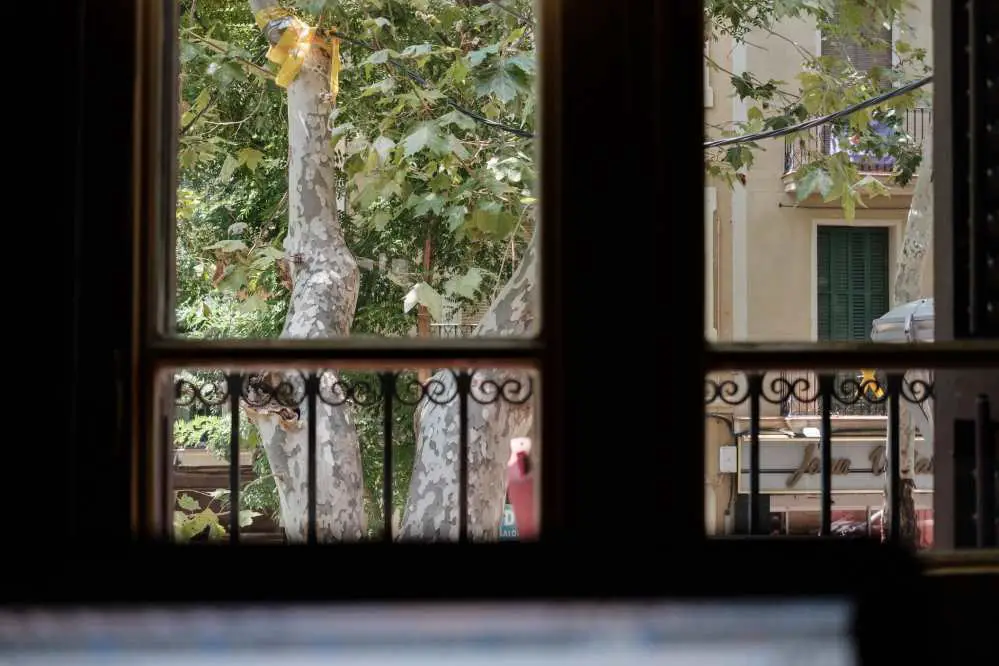
I realised that it wasn’t necessarily travel that I was so passionate about, but storytelling. I see writing, photography and filmmaking all as tools for telling stories. Some stories I find easiest to tell in writing, others in still images and others with video, but it’s always the same objective – to share a feeling, tell a story.
As cheesy as it sounds, I don’t think of myself as a writer or a photographer or a filmmaker, but as a creative, a storyteller.
The most recent post on Driftwood Journals contains a short film about Barcelona called Barcelona; A day. A life. Could you tell us more about how that film came about?
It’s one of those projects that kind of happened by accident, over a very (very!) long period of time. During lockdown, I was looking through my photo archives from my time in Barcelona. I found hundreds if not thousands of photos I’d never shared.
I almost always had a camera with me when I was out and about in Barcelona. I didn’t need to be going anywhere in particular or doing anything “special”. Once you start seeing photographically, you start to see the world in a much more vivid way. It’s a sort of meditation.
So I’d be out and about taking photos. And occasionally I’d switch over to video and film a couple of clips. I didn’t give it too much thought at the time. These random video clips built up over the years, but I didn’t do anything with them. In fact I didn’t even look at them until lockdown (because I was always too busy with other projects).
I realised that the photos and video footage were a sort of representation of my entire life in Barcelona. You may have heard of the video app called 1 Second Every Day. Each 1-second clip on its own means almost nothing, but when you put them all together, suddenly you have all these flashbacks of tiny moments that tell such incredible life stories.
Well, I didn’t have the app, but I did have all these video clips that I’d shot over a period of about three years – from 2017 to 2019. And with my newly-honed video editing skills, I started putting them together. I also published the photos as a series on my blog, which accompany the video.
I titled the video, Barcelona. A Day. A Life. as a play on the phrase “a day in the life”. Watching the film, which starts in the morning and ends at night, it appears to be just one crazy day. But it was in fact an entire life, my entire life, for three years. It’s a sort of distillation of my time in Barcelona, and a celebration of all it has to offer as a city/home. I think that anyone who has been to Barcelona will relate.
As you know, I’ve read your blog quite a lot and, apart from the quality of the articles, one thing that stands out is that, unlike most bloggers, you don’t use display ads or many affiliate links. I’m assuming that this is because you view your blog as more of a way of publicising your writing, an online portfolio if you like.
It’s difficult to make money from a blog. I’m not against display ads, but they don’t make a lot of money and definitely look awful. I much prefer affiliate links because they actually add value to the reader (if used properly) while putting a couple of euros (literally a couple of euros per booking) in my pocket to allow me to keep going.
But yeah, the purpose of my blog is not to make money. If money was my main motivation in life, I wouldn’t be doing what I do for a living, that’s for sure! The purpose of it is to share my creations. I think of Driftwood Journals as my own little art studio or gallery – it’s its own entity.
We forget how lucky we are in the digital age to be able to put our work out there ourselves, without needing someone else’s approval to do so.
Do you get many publications that contact you to see whether you can write from them or do you have to go actively looking for work? I can imagine that publications like National Geographic don’t usually reach out to bloggers to see if they want to work for them right?
I’ve never had any luck going out there trying to drum up business. For me, I’ve just worked really hard to showcase my skills and position myself as some sort of authority. Then, with a bit of luck, when publications such as Nat Geo or Telegraph Travel are actively looking for someone to create the content they need, hopefully they’ll find me and get in touch.
Generally that’s how it’s always worked. Of course, most of the companies that get in touch are significantly smaller than Nat Geo, but I actually prefer working with the smaller companies anyway as you can make a bigger impact and offer more value. Plus they give you more freedom. I think I’m the sort of creative that needs no limitations, I need to feel that I can be myself.
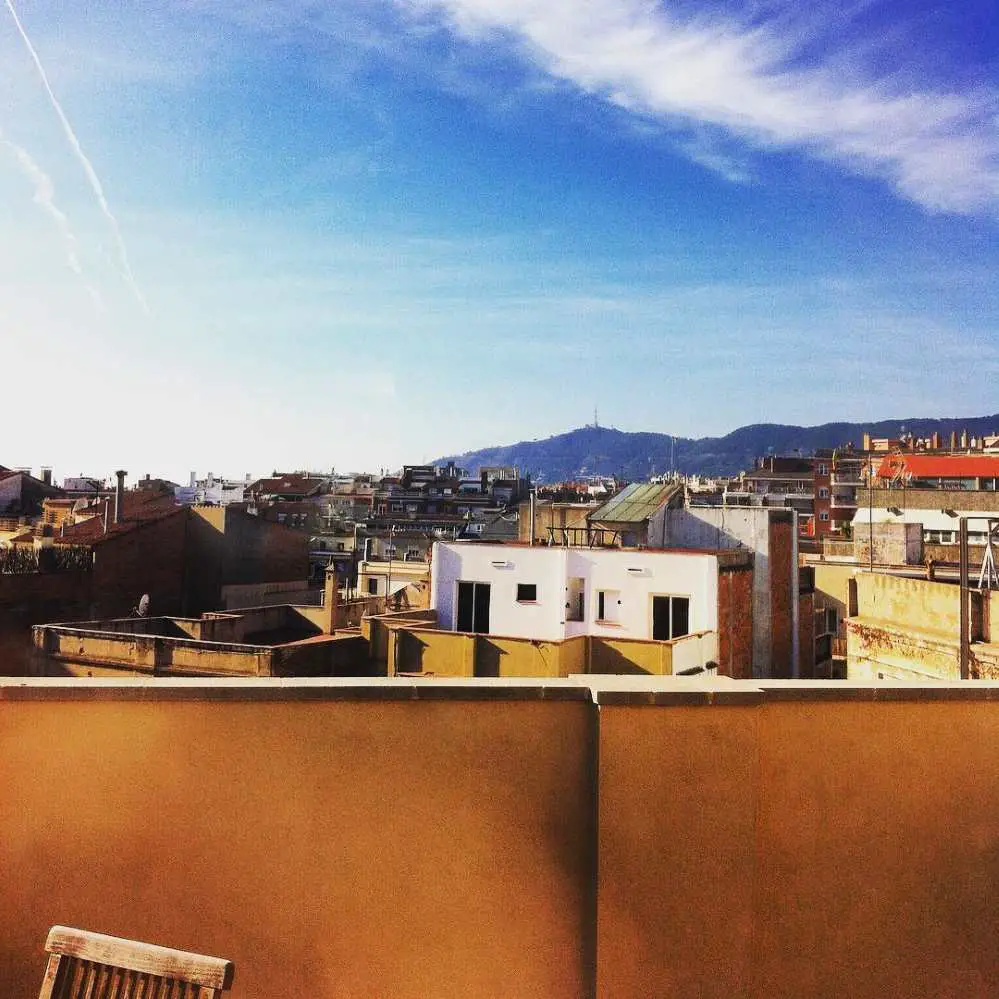
What advice would you give to someone who’s new to blogging or is perhaps thinking of moving to Barcelona to become a travel writer?
My advice would definitely be to focus on one destination and become an absolute expert on it. You need to be an authority in your niche. For example, the National Geographic only asked me to write their Barcelona guide because they viewed me as an expert on all things Barcelona (and I assume they’d read something which made them think I was capable of writing in a way that would fit with their style).
The same could be said of both books I published about Barcelona. They would never have asked me to write a guide to Sydney, for example, and that makes sense.
Back in the day I think travel bloggers were perceived to be experts on all forms of travel – ”travel” itself was the niche. But now, as the market has become more saturated and granular, I think it’s become increasingly important to position yourself as an authority on a specific “thing” or “place”.
Then you have niches within niches. Perhaps you love craft beer and you live in London. Your blog will make far more of an impact if you focus on the London craft beer scene rather than focussing on craft beer more generally. Choose a destination and try to stick to a general theme – i.e. food & drink, family travel, adventure travel, LGBQT travel, etc.
Be specific, be useful and be an authority.
In addition to Driftwood Journals, you’ve also launched a personal blog and a YouTube channel. Are these intended to be a way of growing traffic to Driftwood Journals or are they a vehicle for diversifying and maybe exploring new opportunities?
Yes, BenHolbrook.com is basically an outlet for my non-travel related stuff. I love writing fiction, for example, which doesn’t really “fit” on Driftwood Journals. I’ve also shot a few films which have nothing to do with travel, such as “I Surrender”, which I wrote and filmed at the onset of the pandemic. So it’s nice to be able to publish this somewhere.
My Youtube channel is purely to host my films, and hopefully to help people find them. I like to think that my videos will help people find my blog, and also vice versa. Ultimately, as a creator, you want to create work and share work, so I’m always looking for ways to get it out there. It’s difficult. To be honest, creating the work is the easy bit!
I don’t really think about traffic anymore, I just think about creating. That’s my goal: to make a living from being creative. And the way I see it, more content equals more traffic, anyway, so there’s not much point spending too much time looking at analytics. Anything other than creating is just a distraction.
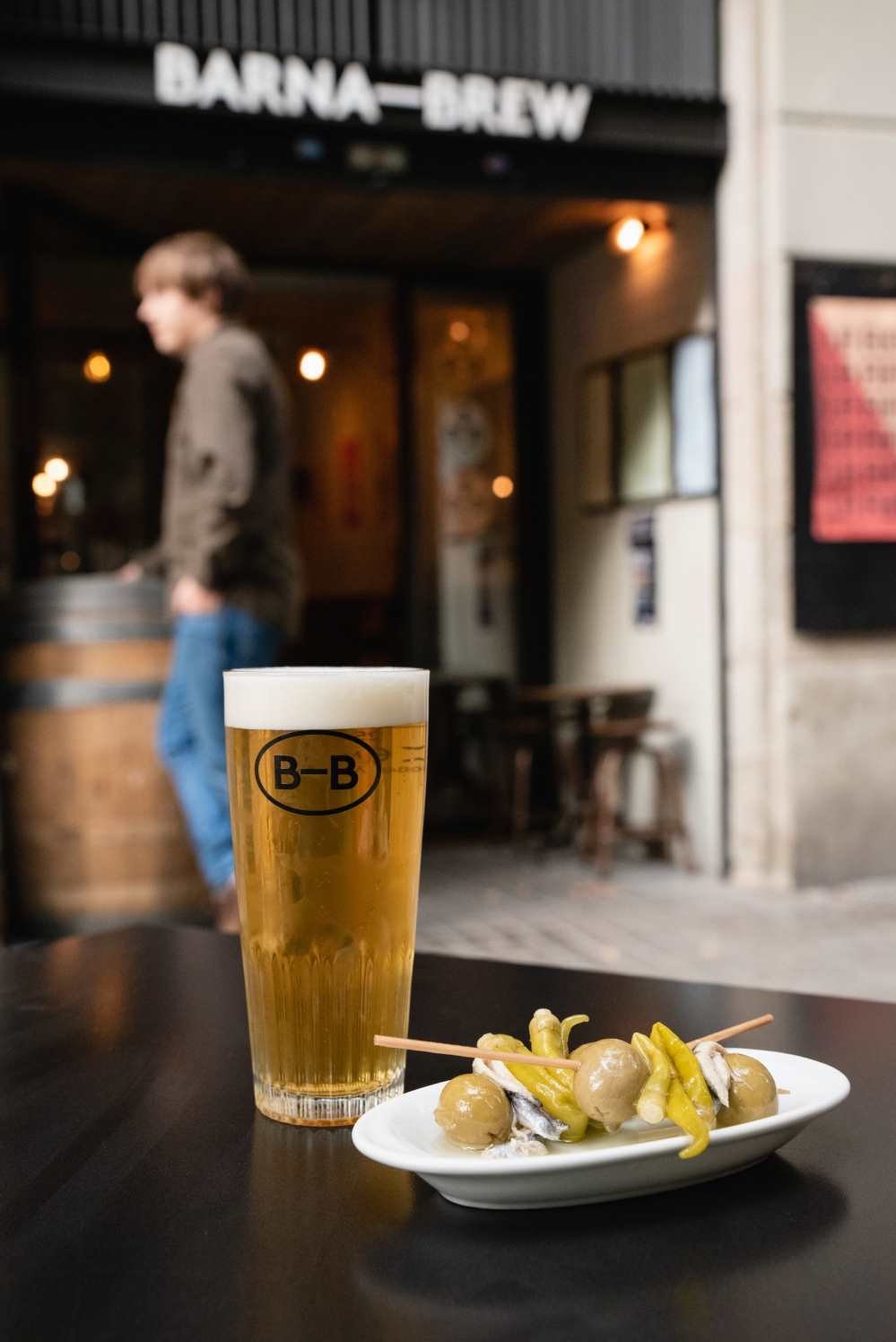
In recent years, many of the so-called blogging and SEO gurus have been pushing YouTube as the fastest way of growing a following and getting traffic. Have you found this to be true? How does starting a YouTube channel compare to launching a blog? Do you remember what the early days of Driftwood Journals were like?
I don’t think I’m successful enough to comment on this… Starting YouTube has been a slow burn for me, and I have done it my own way, perhaps to my detriment. I don’t speak to the camera or shoot vlogs. My films are like more “traditional” films and I do wonder if that makes it harder to build an audience (as my viewers don’t necessarily have a face to relate to). I might try sometime, but it’s not really in my nature to sit in front of the camera and deliver a monologue. I love writing because I can express myself succinctly, whereas, when I talk, I find it quite difficult to verbalise my thoughts. But I’m seeing steady incremental growth, and I’m happy enough with that.
The early days of Driftwood Journals were far more successful than the early days of my YouTube channel. I always remember the Lonely Planet retweeting my post about the Best Things to Do in Barcelona. Suddenly I was ranking in position #3 for that search term on Google and my traffic went from 100 a day to 1000 a day. The irony was that I was living in London at the time. That’s when I started thinking maybe I could make something of it if I moved back to Barcelona. I guess I was right.
During the last twelve months, the pandemic has drastically changed everyone’s lives. I’m lucky in that, apart from the fact that I now mostly work from home, my day job has remained largely unaffected. I can’t imagine that things have been so easy for people who make a living from travelling. What has life during a pandemic been like for you as a freelance travel writer and content creator?
I know, it’s just been awful hasn’t it. I guess I feel somewhat lucky that I have been able to carry on with my copywriting work, which I have always kept simmering on the backburner – because I enjoy it and because it allows me to live as I want, as a freelancer, which has always been my main goal.
But yes, I lost a lot of travel writing work. It was really upsetting as I had only just started to feel like I had established myself and that I could be confident things were going to work out.
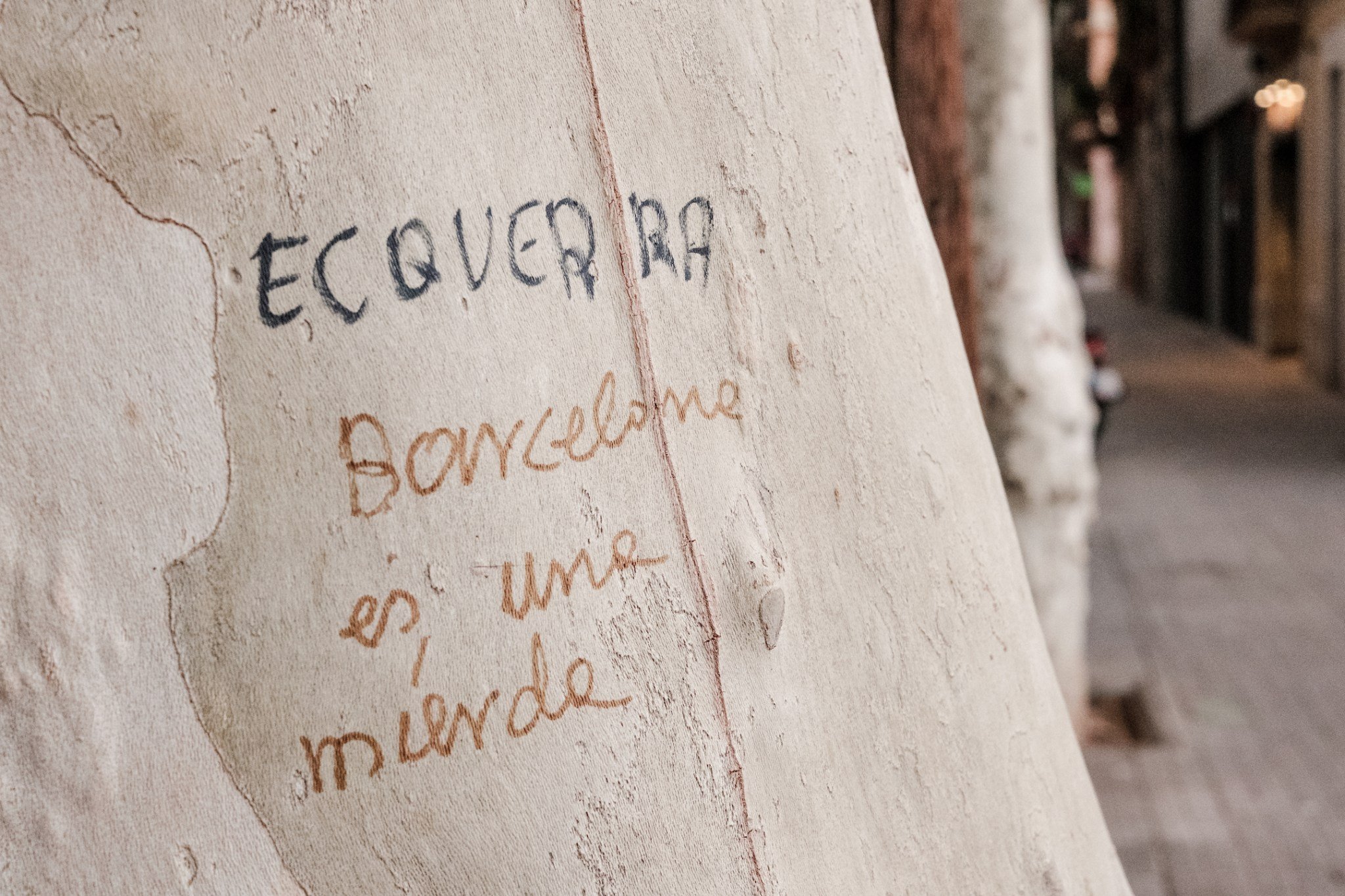
However, I’d like to point something out… People always assume that, as a travel writer, you make your money from travelling. That’s not true, you make your money from writing about travel. For every day I have spent travelling, I have spent 20+ days writing. And of course, many travel writers these days write about the place they live in, creating content for travellers who want to visit (as I did when I lived in Barcelona, and as I do now that I live in Wales).
I still work on sponsored projects on my blog and various other travel-related projects. But yes, it’s true that I lost a lot of clients who simply couldn’t justify investing in content creation when they had no paying customers. So many people around the world depend on the travel industry to make a living. I only hope it returns with vigour sometime soon.
But going back to what I was saying earlier, as much as I miss travel, travel itself is not the end goal for me. My mission in life is to create and tell stories. True, this is easier to do when you’re free to travel, but it’s not essential. I have still managed to keep creative during lockdown. I still feel creatively fulfilled, so all is not lost.
What are your plans now that vaccines are being rolled out and it looks like we’ll soon be able to start travelling again? Do you think you’ll be back in Barcelona soon, and if so, what will the first thing you do when you get here?
I’m so happy that the vaccines have arrived and seem to be making a rapid and positive impact. It’s been so long since I travelled that I think even taking a road trip within Wales would feel like a massive adventure, so I’ll probably start like that.
Of course I’m also really excited to get back to Barcelona to see my friends and live a little of the good life – I’ll visit all of the bars/bodegas mentioned above and perhaps borrow a bike and head up to Collserola. But I think the most important thing is that we solve the pandemic issue once and for all. If we keep getting ahead of ourselves, I’m worried we’ll keep having new waves.
Thanks for having me on your blog, Richard. I’ve been a fan of yours for a long time and very much respect the integrity and quality of your content. With a little luck we’ll be able to get together soon and celebrate with a few cold ones!
I’d like to say a big Thank you! to Ben for taking the time to answer my questions and sharing his experiences and insights with us.
All the images in this post are by Ben Holbrook, you can see more of his work on Instagram, YouTube and of course Driftwood Journals.


